Keynote at ICXR
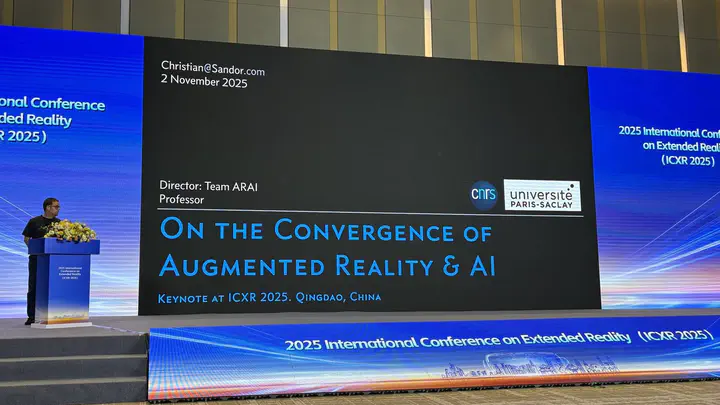
Every time I visit China, I am absolutely astonished by their pace of progress. It is simply not possible to grasp this from the outside, as lots of information is not very accessible from abroad. In this post, I would like to share some of the things I learned during my visit.
I presented a keynote at the new and upcoming International Conference on Extended Reality (ICXR); even though it was only the second time that this conference took place, it was well attended. It was co-located with ChinaVR, the biggest VR conference of China (running since 2001).
It is important to understand how Chinese research is organized. The Chinese research community elects Academicians (中国科学院院士) for all important research areas. Then, the Academician has strong influence on the policy, research, and commercial developments in China. I don’t think neither the US nor Europe have any equivalent of this. 3 Academicians attended the event:
- Shi-min Hu: Computer Graphics
- Qinping Zhao: Virtual Reality
- Hongke Zhang: Networking
There were also 2 more researchers of that caliber, who I guess will become Academicians sooner or later:
- Baoquan Chen: Computer Vision
- Yongtian Wang: Optics for AR/VR
Several companies showed exhibits, including Goertek. To be honest, I have never heard of this company before! But, they are producing 80% of the world’s AR and VR glasses! Could you have guessed that based on their Wikipedia page? Unfortunately, photos were strictly prohibited at their large booth. I could clearly see that they are not simply a factory for US companies, but very innovative and contributing key technological developments, including:
- High pixel density display panels (Micro OLED)
- Miniaturized water cooling for AR/VR glasses (the water-cooled board they showcased was about 2x4 cm big; water pipes around 2mm diameter)
- Advanced pancake optics
Hongke Zhang presented a thought-provoking keynote along the lines of: What network infrastructure do we need to support the rapidly changing network requirements in an AI world? It included many science-fiction level concepts such as:
- A longterm roadmap including 6G and beyond with mobile speeds of Terabits per second
- Mesh-networking with drone swarms
- Streaming neural content (NERFs, Gaussian Splats, etc)
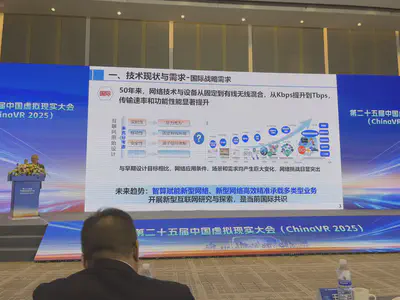
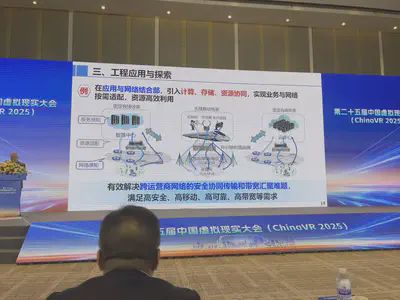
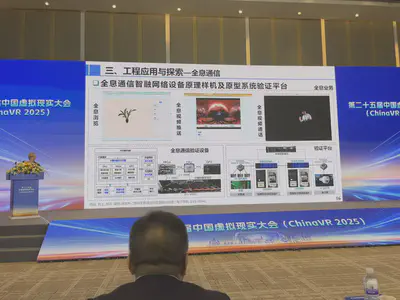
Next up was Baoquan Chen. A major thread of his talk was along the lines of (please excuse my informal language):
- AI Video generators along the lines of SORA and VEO suck, because they lack understanding of the physical world. They are essentially a dead end.
- Gaussian Splatting is very popular now, but it is by itself also a dead end, because of the inherent inflexibility and non-interactiveness.
I already came to similar conclusions, albeit for different reasons :-) He then presented several recent works by his group how to overcome these limitations. In short: real instead of hallucinated physics are needed!
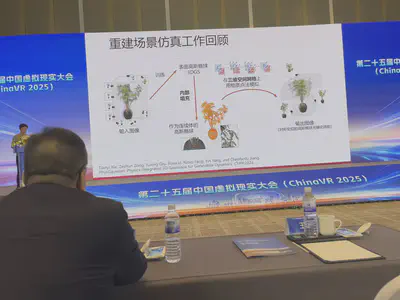
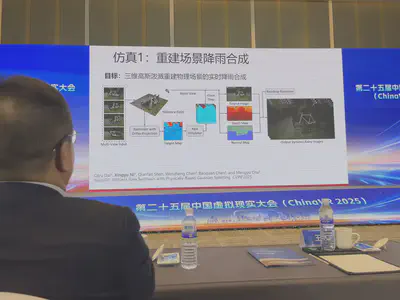
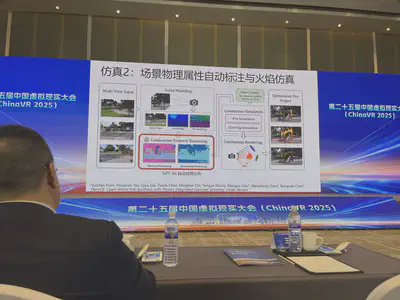
I was extremely glad that Shi-Min Hu chiseled out 20 minutes out of his busy schedule to talk to me. Our chat was very intense… I now understand better China’s strategy how to deal with the import restrictions of NVIDIA GPUs. I mean, at the moment, Chinese AI models are already on the same level as their US counterparts (I personally think that they are actually already better, but this is debatable). They achieved this even though their current GPUs are much weaker than the ones Meta, OpenAI etc. are using. If they get comparable compute power as the US than their AI models will run circles around their US counterparts. It will happen much sooner than the public thinks… I can’t wait to switch to Chinese GPUs!
It was a lucky accident that I sat next to Yongtian Wang at the closing dinner. He shared some incredible stories about the custom optics design software he wrote back in the day (in Fortran!): GOLD = General Optical Lens Design system :-) As their group can’t use the world-wide standard software (Code V; another US import restriction), they have been recently reviving this decade-old software.
Finally, I should also spend some words on my keynote. My recent discussions with Notch’s Matt Swoboda (the grand wizard of realtime computer graphics) inspired many of the open questions that I discussed in my talk.
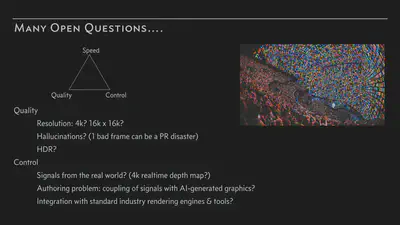
To conclude, a little video from the soundcheck of my presentation. The sound system was really good!